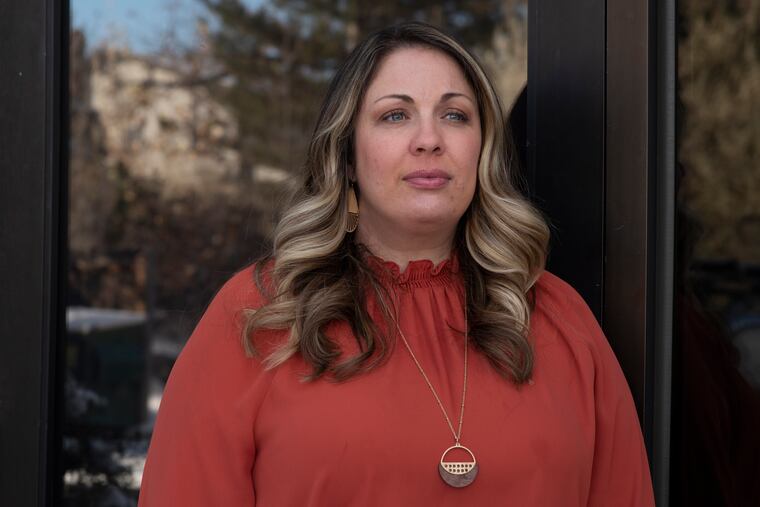The Supreme Court’s ‘303 Creative’ decision benefits progressives and conservatives alike
All people must be served, but not all messages must be communicated.

When I met T-shirt designer Blaine Adamson seven years ago in Harrisburg, he was in the midst of a legal challenge threatening his business with fines and bankruptcy. At issue: whether the government could force him to create T-shirts with a message with which he disagreed.
Adamson has gay employees and serves everyone regardless of their sexual orientation. But when he declined to print T-shirts celebrating a gay pride event in Lexington, Ky., because he disagreed with the message, the government sought to force him to do so. Adamson declined other unrelated messages through the years, including one requested by a church group. But on this topic, he was subject to years of litigation and damage to his business.
In a good turn, Kathy Trautvetter and Diane DiGeloromo, a lesbian couple with a T-shirt business in New Jersey, came to Adamson’s defense, recognizing that it “isn’t a gay or straight issue.” They added, “No one really should be forced to do something against what they believe in.” Though they disagree with Adamson, they certainly don’t want to be compelled to speak a message with which they disagree.
These are the operating principles behind last week’s U.S. Supreme Court decision in 303 Creative LLC v. Elenis. This decision has value for all Americans — of all beliefs, not only in the area of protecting free speech but in advancing inclusion as well.
Lorie Smith, through her business, 303 Creative, designs websites and wants to use her skills to promote traditional marriage. But the state of Colorado stood in the way, making it illegal to decline to design websites promoting same-sex marriage. Like Adamson, Smith serves all customers — regardless of sexual orientation — but does not take projects communicating messages she disagrees with.
In considering Smith’s right to “speak” (or to decline to), we should not substitute our own judgments for hers. Freedom of speech matters, not because we agree with the message spoken (or printed) — or in this case, withheld — but because our fundamental rights depend on the tolerance given to others to exercise those rights.
In its opinion, the court made clear that if the government may compel speech when “the topic somehow implicates a customer’s statutorily protected trait,” then it could require “an unwilling Muslim movie director to make a film with a Zionist message,” or “an atheist muralist to accept a commission celebrating Evangelical zeal,” or a gay website designer “to design websites for an organization that advocates against same-sex marriage.”
Creative professionals should be free to say no because of the message being requested — but not based on who is requesting. Conversely, it is unlawful for creative professionals to refuse to serve a customer not because of the message, but because of the customer’s religion. There’s a distinction between disagreement with a message and animus toward a group.
So, too, for 303 Creative. Smith does not refuse to serve gay customers, and the Supreme Court opinion does not give her the right to do so. But just like the movie director, muralist, and website designer, if she doesn’t want to participate in a message, she’s now free to say no. All people must be served, but not all messages must be communicated.
By promoting fundamental speech rights, 303 Creative also advances inclusion. In the 1600s, Parliament passed the Test Acts, which, like Colorado’s law, sought to compel speech irreconcilable with individual beliefs. It required those entering certain professions to swear an oath to the king and the Protestant English church — an oath that Catholics could not take. Similarly, excluding website designers from the marketplace who cannot affirm same-sex marriage severely damages the principle of inclusion. Violating that principle may harm those who adhere to traditional marriage today — and everyone else tomorrow.
The 303 Creative decision should help Pennsylvanians navigate our own Human Relations Act so that no one — conservative or progressive — is compelled to support messages with which they disagree. This respects the diversity of customers and the diversity in beliefs of service providers so that there is room for all of us.
As the court stated, “The First Amendment envisions the United States as a rich and complex place where all persons are free to think and speak as they wish, not as the government demands.” That principle serves us all.
Randall Wenger is chief counsel of the Independence Law Center in Harrisburg and filed an amicus brief in support of “303 Creative.”